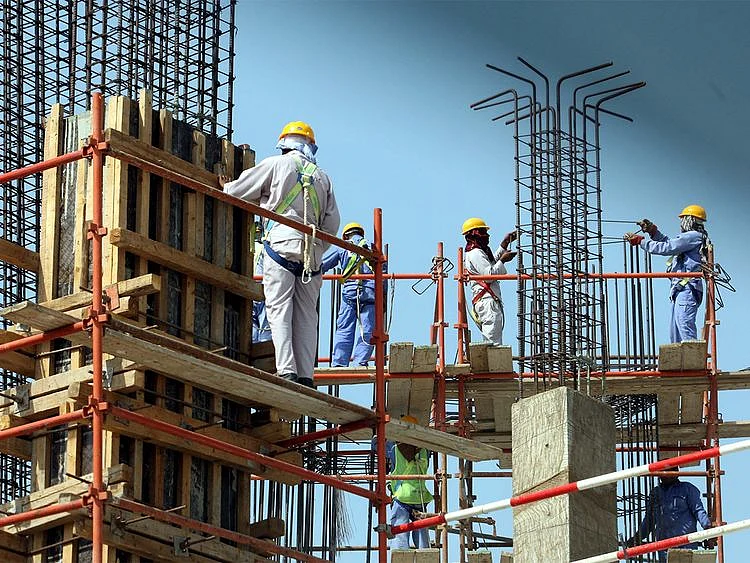Are UAE employers doing enough to protect workers during summer?
Strict rules to ensure safety entail obligations for both employers and employees

Dubai: With summer getting hotter, the UAE is making significant efforts to protect outdoor workers from occupational hazards and injuries related to extreme heat.
Strict regulations are in place for the benefit of workers, including a mandatory midday work break and monitoring systems to ensure compliance.
This year, the ban came into effect on June 15, prohibiting work under direct sunlight and in open-air areas across the country from noon to 3pm until September 15.
According to Federal Decree-Law No. 33 of 2021, employers are required to provide a safe and suitable work environment. They are also required to assign doctors to regularly examine workers at risk. But are employers in the UAE doing enough to protect their workers?
The Ministry of Human Resources and Emiratisation (MOHRE) and other authorities have reminded both employers and employees of their obligations during the period:
Employer obligations
* Provide necessary protective equipment
* Ensure guidance and awareness regulations
* Offer proper training to avoid risks
* Conduct periodic assessments to ensure compliance with safety requirements
Worker obligations
* Use the provided protective equipment and clothing
* Follow employer’s safety instructions
* Avoid obstructing safety procedures
* Adhere to orders related to occupational safety
* Take care of protective equipment in their possession
Reporting injuries
MOHRE has said employers are duty-bound to report work-related injuries and diseases through its digital system, approved service centres, MOHRE mobile app or any other specified channels.
For establishments with more than 50 workers, a monitoring system for work injuries and occupational diseases must be in place, including:
* Register of occupational injuries and diseases
* Necessary protective tools and rehabilitation programmes
* List of high-risk activities
* Periodic health examinations
* Quick reporting mechanisms
* Investigation procedures for injuries and diseases
* Disability reports from medical committees
* Record of worker inspections
* Maintain records for at least 5 years post-service
Compensation for workers
Employers must also treat and compensate workers for injuries and diseases as per Federal Decree-Law No 33 of 2021, MOHRE has said.
Compensation is based on the last wage received and is payable within 10 days of the medical report. In case of death, compensation equals the basic wage for 24 months, provided that the compensation shall not be less than Dh18,000 and not more than Dh200,000.
Permanent total disability compensation matches death compensation, while partial disability compensation is calculated based on specified percentages, MOHRE added.
Sign up for the Daily Briefing
Get the latest news and updates straight to your inbox
Network Links
GN StoreDownload our app
© Al Nisr Publishing LLC 2026. All rights reserved.